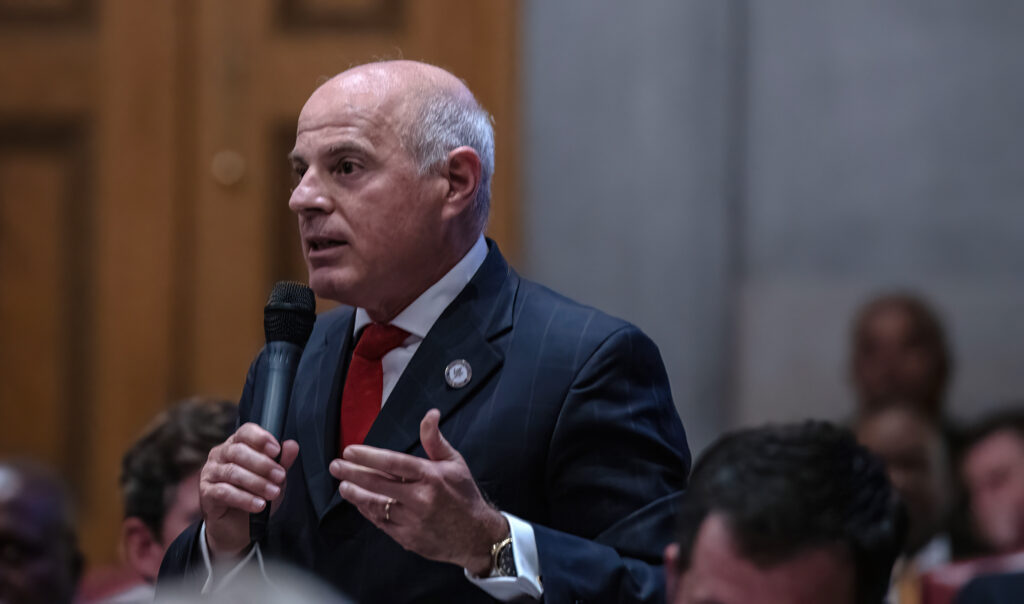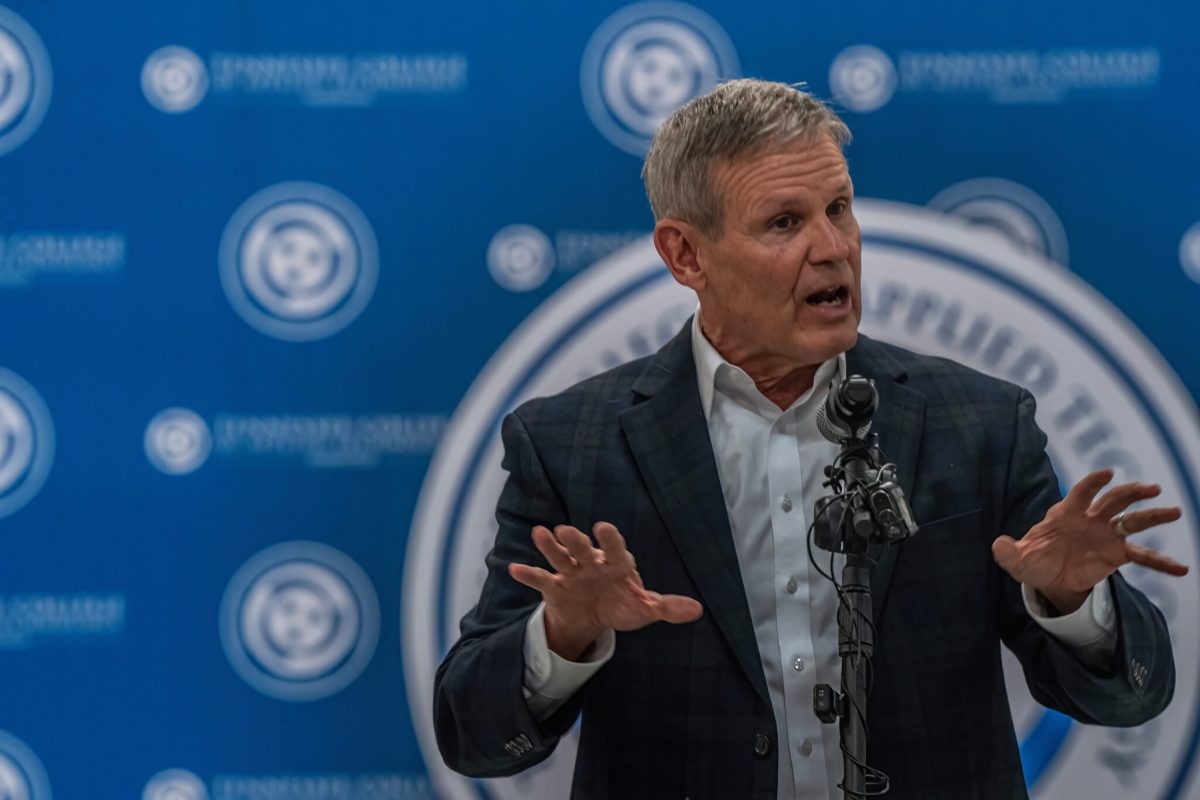Buoyed by President Donald Trump’s plan for mass deportation of undocumented immigrants, Tennessee’s governor is proposing to fund an immigration enforcement bureau that could take on deportation authority to remove people from the country.
In a proclamation calling a special session to start January 27, Governor Bill Lee detailed creation of a central immigration agency with enforcement powers and a closer relationship with U.S. courts, and possible use of state courts, to remove undocumented people. Lee’s plan establishes a fund to pay for the agency, but he has not given a cost estimate.
Under current law, federal authorities handle immigration law, in some instances working with local law enforcement. But this move would give the state wider latitude to enforce those laws, especially in conjunction with a federal court dealing with immigrants accused of “terrorism.”
The state’s attempt to do the federal government’s bidding sets a dangerous precedent for all of us and our constitutional rights.
– Lisa Sherman Luna, Tennessee Immigrant and Refugee Rights Coalition
Lisa Sherman Luna, executive director of the Tennessee Immigrant and Refugee Rights Coalition, said Tuesday state and local processes are handled separately from federal immigration matters.
“The state’s attempt to do the federal government’s bidding sets a dangerous precedent for all of us and our constitutional rights,” Sherman Luna said.
Lt. Governor Randy McNally said Tuesday even though no bill has been filed, he supports including immigration in the governor’s call for a special session.
“President Trump has made clear he intends to reverse the Biden illegal immigration invasion immediately,” McNally said. He added that undocumented immigrants with felonies and criminal records need to be removed quickly.
Lee has confirmed he would activate the National Guard to take on Trump’s plan to deport “criminals” without citizenship status. Trump, though, has mentioned removing up to 18 million people without documentation and revoking birthright citizenship, which is guaranteed under the Fourteenth Amendment to people born in the country regardless of their parents’ immigration status, as well as children born abroad to U.S. citizens. Twenty-two states filed suit Monday to stop his effort to end birthright citizenship.
Trump declared a national emergency for the U.S.-Mexico border Monday, the day of his inauguration, enabling him to deploy armed forces such as National Guard troops, set up more barriers, complete a wall, and allow for unmanned air surveillance. Tennessee has sent its troops to the border multiple times already.
The order also allows the Insurrection Act of 1807 to be invoked, granting the president authority to use troops against Americans involved in civil disorder or rebellion.
A separate executive order he signed Monday stopped some legal forms of immigration, including humanitarian parole for nationals from Cuba, Haiti, Nicaragua, and Venezuela, and ended the use of an app for migrants to make appointments with asylum officers.
Under Lee’s plan, in addition to establishing an immigration agency, the state would have the ability to penalize local government officials that adopt sanctuary city policies. Sanctuary city policies, which limit the sharing of information with federal authorities, are illegal in Tennessee.
The proclamation also calls for revising state-issued IDs to determine a person’s immigration status for voting rights and government services. Rep. Gino Bulso (R-Brentwood) is sponsoring a measure requiring financial institutions to check the immigration status of anyone attempting to send money out of the country.

The immigration enforcement plan will be considered during the special session at the same time lawmakers take up the governor’s private-school voucher plan, Hurricane Helene relief for eight East Tennessee counties and establishment of the Tennessee Transportation Financing Authority to help deliver public-private road construction projects. The state is working on a toll lane along I-24 from Nashville to Murfreesboro as part of an act the legislature approved in 2023.
Several immigration-related bills are sponsored, including one by Senator Shane Reeves (R-Murfreesboro) that requires the Department of Safety and Homeland Security to study the enforcement of federal immigration laws, detentions and removals, as well as state investigations and immigrant-related challenges and progress.
Another measure by Representative Todd Warner (R-Chapel Hill) requires law enforcement agencies to communicate with federal officials about the immigration status for people arrested for a criminal offense.
A bill by state Representative Gino Bulso (R-Brentwood) requires financial institutions to verify the immigration status of a person sending funds outside the United States.
State Senator Todd Gardenhire (R-Chattanooga) is sponsoring a bill that would exempt undocumented immigrant students who otherwise would be reported by local authorities to federal immigration officials for deportation. A law passed in 2024 requires local law enforcement to tell federal immigration agents the immigration status for anyone arrested for a criminal offense.
Tennessee Lookout is part of States Newsroom, a nonprofit news network supported by grants and a coalition of donors as a 501c(3) public charity. Tennessee Lookout maintains editorial independence. Contact Editor Holly McCall for questions: info@tennesseelookout.com.


 White House
White House  Joshua Roberts | reuters
Joshua Roberts | reuters 